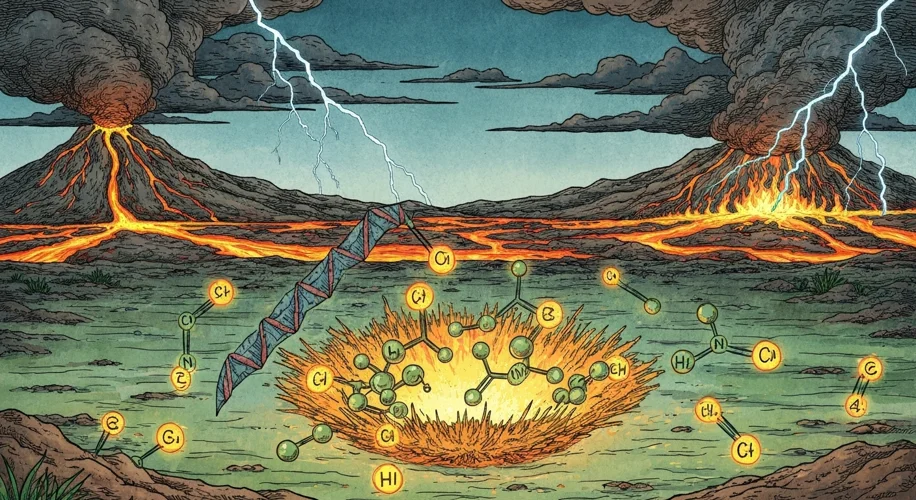Imagine a time long, long ago, when Earth was a very different place. No bustling cities, no lush forests, just a primordial world with a rich, chemical soup. Scientists have been fascinated by how that soup might have transformed into the very building blocks of life.
And now, we’ve got some really exciting news!
Researchers have managed to replicate a crucial step in how life might have begun. They’ve successfully created a process that links together amino acids – the tiny components of proteins – and then helped them assemble into RNA. RNA, as many of you know, is like a molecular messenger, crucial for everything from carrying genetic information to building proteins.
Why is this a big deal?
Well, for a long time, scientists have been trying to bridge the gap between simple chemicals and the complex molecules that make up living organisms. Think about it: how did we get from a planet with just basic elements to one teeming with life?
This new research offers a plausible pathway. They found that under conditions similar to early Earth – think volcanic activity, lightning, and specific chemical environments – amino acids could not only form but also link up to create short RNA strands. It’s like finding a missing piece of a massive cosmic puzzle.
A Peek into the Past
This isn’t just a theoretical exercise. The team simulated conditions that could have existed on Earth billions of years ago. They used specific minerals, like those found near hydrothermal vents or volcanic sites, which can act as catalysts, helping chemical reactions happen more easily. These minerals provided a surface where the amino acids could gather and connect.
What’s really fascinating is how this process naturally led to the formation of RNA. It suggests that the transition from non-living matter to self-replicating molecules might not have been such a giant, improbable leap after all. It could have been a series of gradual, chemistry-driven steps.
What’s Next?
This breakthrough helps us understand the very beginnings of biology on our planet. It opens doors to understanding how life might have started not just here, but potentially on other planets too. If these chemical processes can happen under conditions we’ve replicated, then similar origins could be out there in the universe.
It’s a powerful reminder of how complex life, including us, is the result of incredibly intricate, yet sometimes surprisingly simple, natural processes. I’m always amazed by the elegance of chemistry and how it lays the foundation for everything we see and experience.

